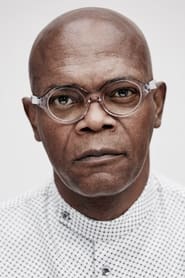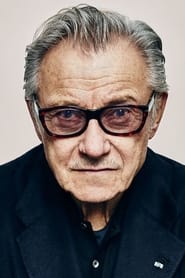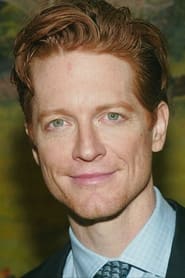Pulp Fiction (1994): Cool, Violent and Lovingly Deranged
Pulp Fiction is the cinematic equivalent of being punched in the face with a fist made of irony and pop culture references. Directed by Quentin Tarantino and released in 1994, it’s the kind of film your film-student mate won’t shut up about—mostly because they think quoting Jules Winnfield makes them deep.
It’s violent. It’s stylish. It’s smug. And it’s still better than 90% of the formulaic dreck Hollywood continues to churn out like fast food for your frontal lobe.
Table of Contents

Plot Summary: Not Chronological, Because Screw You
Trying to explain the plot of Pulp Fiction is like trying to explain your dreams after three glasses of wine-it jumps around, gets weirdly philosophical and ends with Bruce Willis holding a katana.
Here’s the short version:
- Vincent Vega (John Travolta, post-career coma) and Jules Winnfield (Samuel L. Jackson, armed with a Bible and pure rage) are hitmen working for gangster Marsellus Wallace.
- Vincent takes Marsellus’s wife, Mia Wallace (Uma Thurman), out for a night that spirals into overdose territory. Romantic, isn’t it?
- Meanwhile, Butch Coolidge (Bruce Willis) is a boxer who decides not to throw a fight, murders a guy, and ends up in the world’s worst pawn shop.
- There’s a mysterious briefcase, a burger sermon, a dance contest, and a scene with a gimp that ensures you never enter a basement unarmed again.
Tarantino cuts the story into non-linear shreds, tapes it back together with duct tape and ego and somehow, somehow-it works.
Dialogue That’s Cooler Than You’ll Ever Be
One of the reasons Pulp Fiction is tattooed on the soul of cinema is the dialogue. Tarantino has an unnatural ability to make gangsters debating foot massages sound like Shakespeare in Air Jordans.
From the infamous “Royale with Cheese” scene to Jules quoting Ezekiel 25:17 like he’s auditioning for a job as God’s hitman, the lines are razor-sharp, endlessly quotable and delivered with the kind of swagger that makes you forget these people are actual murderers.
It’s smart, stylish and uncomfortably funny, which basically describes Tarantino’s brand in a nutshell.
Tarantino’s Direction: Violent, Vain and Visionary
Tarantino directs like a man who’s seen every film ever made and decided he could do it better, with more blood, more swearing and an inexplicable obsession with feet.
His style is unmistakable:
- Non-linear storytelling because linearity is for cowards.
- Pop culture marinated dialogue that somehow makes McDonald’s sound philosophical.
- Extreme violence, often sandwiched between casual banter and retro tunes.
- Long takes and trunk shots that scream “LOOK AT ME, I’M DIRECTING!”
But here’s the kicker: it works. It’s arrogant filmmaking, but the arrogance is earned. Pulp Fiction oozes confidence and for better or worse, it shaped indie cinema for decades.

The Cast: Resurrected, Reborn and Bloody Brilliant
Let’s take a moment to thank Tarantino for resurrecting John Travolta’s career, only to later see it die again via Battlefield Earth. But in Pulp Fiction, he’s magnetic.
Samuel L. Jackson gives a career-defining performance, turning every line into gospel and every threat into poetry. Jules Winnfield is terrifying, hilarious and possibly your new life coach.
Uma Thurman is a walking aesthetic, Mia Wallace became an icon by merely dancing in a white shirt and overdosing in a drug dealer’s living room.
Bruce Willis gets his grimy moment in the sun with Butch, proving once again that he can punch existential dread in the face with nothing but a sneer and a samurai sword.
Violence, Irony and the Gimp in the Room
Let’s not sugar-coat it: Pulp Fiction is unapologetically violent. People are shot in the face mid-conversation. Adrenaline needles are stabbed into chests. And then there’s the whole… “bring out the gimp” sequence that feels like a scene from Deliverance but with funk music.
But Tarantino doesn’t care if you’re disturbed, he wants you to be. Because violence, in his universe, is either brutally realistic or so absurd it’s almost slapstick.
It’s a film where the line between comedy and horror is a very thin strand of hair—probably found in someone’s milkshake.
Cultural Impact: The Film That Launched a Thousand Imitations
Before Pulp Fiction, indie cinema was a niche curiosity. After Pulp Fiction, every wannabe director in a leather jacket was writing about criminals having breakfast.
It redefined what a film could be:
- A gangster movie where nothing happens in the right order.
- A film about terrible people doing terrible things, yet you like them.
- A movie where style is substance and the soundtrack is a character.
It won the Palme d’Or at Cannes, earned seven Oscar nominations and won Best Original Screenplay. More importantly, it made being a cinephile feel dangerously cool.
The Briefcase: Glowing, Mysterious, and a Giant Red Herring
What’s in the briefcase? Gold? Marsellus Wallace’s soul? Quentin Tarantino’s ego? We never find out and that’s the point. The glowing briefcase is a MacGuffin, a narrative device that drives the plot but means absolutely nothing.
Like life. Or Twitter arguments.

Soundtrack: Funk, Surf Rock and Tarantino’s Spotify Brain
Tarantino’s choice of music is criminally good. Dick Dale’s “Misirlou”, Dusty Springfield, Chuck Berry each track is selected like a fine wine designed to pair with graphic murder.
The soundtrack doesn’t just complement the film, it becomes part of its DNA. Just try to hear “Girl, You’ll Be a Woman Soon” without visualising Uma Thurman slow dancing toward disaster.
Final Verdict: 5 Adrenaline Shots to the Heart out of 5
Pulp Fiction is messy, violent, pretentious, and completely obsessed with itself. And it’s one of the greatest films ever made.
It broke rules, broke narratives and broke your expectations. Even now, three decades on, it feels fresher than most modern blockbusters trying desperately to go viral on TikTok.
Watch it again. Quote it badly. Argue with strangers online about the briefcase. It’s the Tarantino way.

Recommended If You Like:
- Stylish violence that makes you question your morals
- Films that make timelines optional
- Arguing about what constitutes a “masterpiece”
- Fast food philosophy
- Vengeful boxers with samurai swords
Want More?
- Reservoir Dogs: The Tarantino Warm-Up Act
- Fight Club: Therapy for White-Collar Rage
- Trainspotting: Heroin, Hilarity, and the Horror of Growing Up

Pulp Fiction
Vincent Vega
Jules Winnfield
Mia Wallace
Butch Coolidge
Marsellus Wallace
The Wolf
Lance
Pumpkin





















